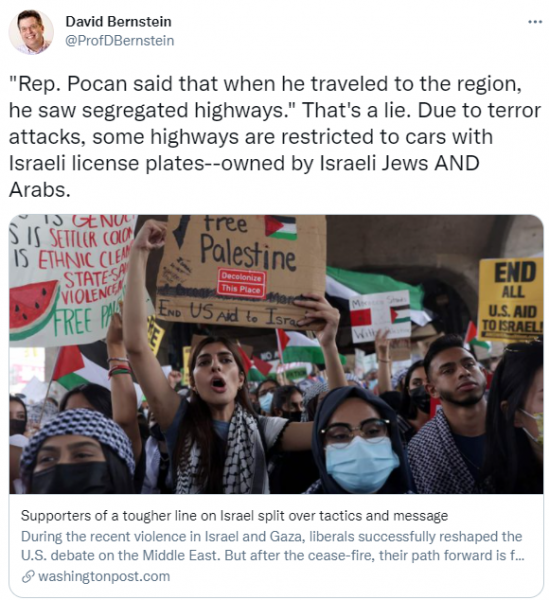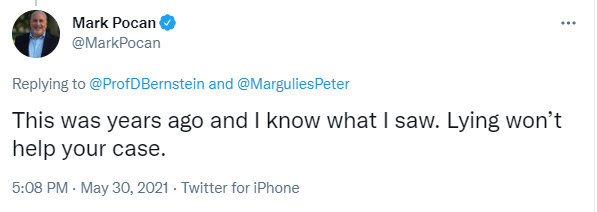THEY LIE, AND THEY THINK YOU ARE THAT STUPID: Rep. Mark Pocan lies about Israel having “segregated highways.”
One of the leading Israel-haters in Congress, Pocan told the Washington Post that “when he traveled to the region, he saw segregated highways and ‘that does remind me of an old South Africa, right?'” The South Africa analogy seems to make it clear that he was referring to racial or ethnic segregation.
There are certain roads in the West Bank, mostly near Jerusalem, that drew consistent terrorist attacks on Israeli drivers when they drove near Palestinian towns, resulting in many deaths and injuries. So Israel built bypass roads for cars with Israeli license plates. These cars could be driven by Jews or Arabs (over 20% of Israel’s population), but not by Palestinian drivers who are not residents of Israel, who could still use the old roads. Even that policy was restricted by the Israeli Supreme Court, which held that one major road from Jerusalem could not be restricted because it found that Palestinians did not have a good alternative. A new Jerusalem highway has separate lanes for Palestinian residents of the West Bank who have Palestinian license plates, and for those with Israeli license plates, to allow Palestinians access without providing terrorists an opportunity to attack Israeli drivers.
These are the “segregated roads” Pocan was referring to. Unlike South Africa, they have nothing to do with race, and everything to do with distinguishing between Israeli citizens and residents of all ethnicities, and West Bank Palestinians. Similarly, for security reasons Israel law forbids Israeli citizens from entering Area A of the West Bank, which is under Palestinian Authority security control. There is no racial or ethnic bias behind these rules, only security concerns because of terrorism.
So I called Pocan out on his lie on Twitter.

Pocan easily could have ignored my Tweet. He also could have claimed that when he said “segregated” he simply meant segregated between Israelis and non-Israelis, which is unfair, in his opinion, even if it’s not race-based. As a law professor colleague claimed on Pocan’s behalf, he could have argued he had been imprecise, and clarified that he was not referring to South Africa-style racial segregation.
Instead, he doubled down on the lie, and then, remarkably, accused me of lying.

